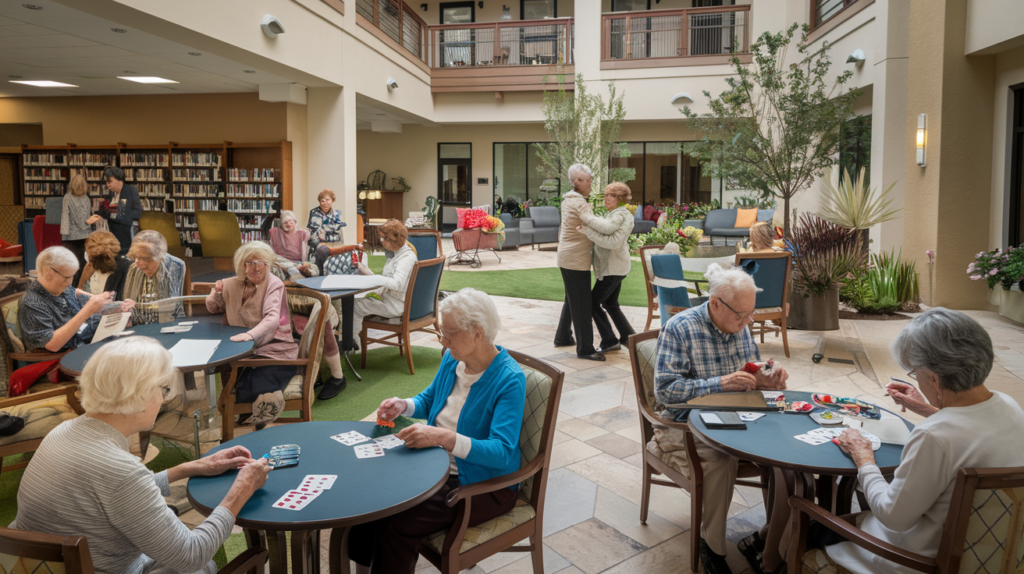As we navigate the various stages of life, the importance of community and connection becomes increasingly evident. Community-focused retirement homes offer more than just a place to live; they provide an environment where individuals can forge meaningful relationships, engage in enriching activities and maintain independence while surrounded by supportive peers.
In this blog, we will explore the numerous benefits of these homes, highlighting how they foster a sense of belonging and enhance overall well-being. Whether considering a move for yourself or a loved one, understanding the value of community in retirement living can lead to informed and empowering decisions.
If you or your loved one are looking for retirement living options in Alberta and Ontario, be sure to click the link.
Personal care options
Community-focused retirement homes provide a range of personal care options tailored to the unique needs of older adults. These services are designed to empower individuals by fostering independence while ensuring assistance is readily available. For instance, assistance with daily activities such as bathing, dressing and medication management helps individuals maintain dignity and promotes a higher quality of life.
Moreover, the availability of trained staff who understand the specific challenges faced by older adults can alleviate concerns for both residents and their families. This level of personalized care creates a supportive environment where individuals feel valued and understood, ultimately enhancing their well-being and peace of mind.
By incorporating real-life examples, such as engaging residents in wellness programs or offering help during mealtimes, community-focused retirement homes effectively demonstrate how personal care options cater to the diverse needs of older adults.
Social benefits
Living in a community-focused retirement home offers older adults significant social benefits that can significantly enhance their quality of life.
One key advantage is the opportunity for regular social interaction, which helps combat feelings of loneliness and isolation. Engaging in fun group activities such as arts and crafts, book clubs, or exercise classes fosters friendships and encourages residents to connect with one another, creating a network of support.
Moreover, these communities often organize social events, such as themed dinners and outings, which promote a sense of belonging and shared experiences. For example, hosting regular game nights can spark laughter and camaraderie among residents, leading to solid bonds that enrich their daily lives.
Additionally, community-focused retirement homes may facilitate intergenerational connections by inviting youth groups for activities, bringing joy and vitality to all participants. The collective experiences and social engagements offered in these environments contribute not only to emotional well-being but also to maintaining cognitive function and a sense of purpose.
Low maintenance lifestyle
A key advantage of living in a community-focused retirement home is its low-maintenance lifestyle, allowing older adults to enjoy their free time without the burden of home upkeep.
Instead of worrying about household chores such as cleaning, gardening and maintenance, residents can redirect their energy towards activities that enrich their lives and promote well-being. For instance, many communities offer housekeeping services, freeing residents from daily cleaning demands.
Additionally, residents benefit from shared spaces maintained by staff, ensuring that common areas remain inviting and functional. This environment fosters a sense of tranquillity and freedom, allowing individuals to participate in social activities, explore hobbies and engage in wellness programs without the typical distractions of home maintenance.
A low-maintenance lifestyle enhances quality of life and provides peace of mind, as residents can feel confident that their environment is well-cared for.
Conclusion
In summary, community-focused retirement homes enhance older adults’ lives by providing personal care options, social benefits and a low-maintenance lifestyle. These homes foster a sense of belonging and connection and empower residents to live independently while still receiving the support they need.
Individuals can experience improved emotional well-being and maintain a sense of purpose in their daily lives by engaging in meaningful activities and building relationships. If you or a loved one are considering a community-focused retirement setting, we encourage you to explore the benefits available.
